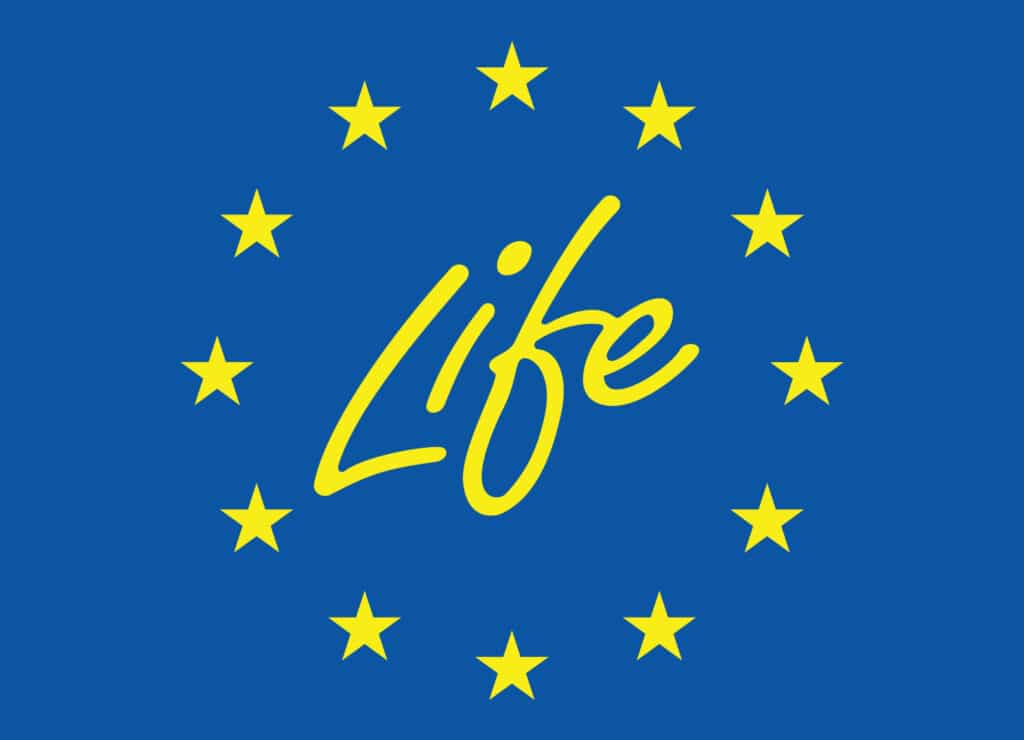Weber fails to derail EU Green Deal, but Parliament agrees to a weakened Nature Restoration Law

Today, the European Parliament voted in favour of the Nature Restoration Law and the EU Green Deal, despite an unprecedented - and often outright absurd - disinformation campaign aiming to destroy it, led by conservative and right-wing politicians and agriculture and fisheries lobbies.
This win, however, came at a very high cost – to reach a compromise, MEPs sacrificed many critical obligations and targets, ending up with a position substantially weaker than the original Commission proposal [1]. This flies in the face of the urgency of the climate and biodiversity crises.
In particular, the Parliament’s position scrapped the proposed article on the restoration of agricultural lands, which includes peatland restoration, thereby foregoing an essential lever for increasing Europe’s ability to sequester carbon and addressing intensive agriculture as the main driver for biodiversity loss. In addition, Parliament adopted an amendment which would delay the implementation of the law until an assessment of the law on Europe’s food security has been conducted – responding to the scare-mongering campaign conducted by Weber’s EPP as well as the far-right groups. A further element of weakening is the removal of the article guaranteeing the fundamental right of access to justice, risking more violations of the Aarhus Convention and an uneven playing field across Member States. The text also contains multiple other weakening derogations and exemptions.
Sabien Leemans, Senior Biodiversity Policy Officer at WWF European Policy Office: “The Nature Restoration Law has become a symbol of the future of the European Green Deal. This vote paves the way for continued action to save biodiversity and address the changing climate. It is thanks to massive support from the public, the scientific community and progressive businesses that a majority of MEPs voted in favour of the law. Still, today’s win came at a high cost. Even with an unprecedented mobilisation to save Europe’s nature, the Parliament’s position is far from what science tells us is necessary to tackle nature loss and climate change.”
Ioannis Agapakis, Nature Conservation lawyer at ClientEarth: “Although the European Parliament adopted the NRL today, the law has been ransacked by the vested interests of many of our lawmakers and we’ve been left with a shell of a law. Today’s vote should have been about securing a pathway to restore our environment for the future survival of people and the planet. Instead, the outcome of the vote means citizens have been left to defend a law that we fear will be profoundly inadequate to tackle the urgent biodiversity and climate crises. Over a million citizens, civil society, businesses and scientists demanded more of their decision-makers – today’s vote shows the European Parliament shied away from meeting those demands.”
Sofie Ruysschaert, Nature Restoration Policy Officer at Birdlife Europe: “Today has been a modest victory for hope over fear – for truth over lies. While there is cause to celebrate, it’s devastating to see that peatlands, farmlands and important deadlines for restoration measures were thrown under the bus in order for the law to survive the vote. We need the three EU institutions to rapidly agree on a final, significantly improved text, so that the real work on the ground can start. The climate and biodiversity is not waiting for anyone.”
Sergiy Moroz, Policy Manager for Water and Biodiversity at the European Environmental Bureau: “The numerous supporters of the law gave a sigh of relief today as the European Parliament backed the Nature Restoration Law opening the way to negotiations with the Council. Unfortunately, this came at a high cost when the Parliament sacrificed many key critical obligations. With this growing support, it is essential that the co-legislators now focus on improving the Nature Restoration Law in the negotiations to make it fit for tackling the challenges Europe faces due to climate change and nature loss.
The vote followed strong public mobilisation to defend the law and the integrity of the EU Green Deal and cut through the fake news, with over a million signatures and messages from citizens, repeated calls from 6,000 scientists, 100+ businesses, and civil society from across numerous sectors to support the Nature Restoration Law.
We are now calling on all EU institutions to make constructive use of the trilogue negotiations to ensure a final law that is fit for addressing the global climate and biodiversity emergency.
Notes to editors
[1] In today’s vote, the European Parliament adopted the amendment based on the General Approach, the EU Member States’ position on the Nature Restoration Lawl. This General Approach already weakened significantly the ambition level of the legal proposal, in particular for the marine, peatland and forest restoration targets, and by deleting the article on access to justice.
In addition, the European Parliament voted for the following individual amendments that are lowering the ambition level, for instance: (note that a full analysis of the position will follow in due course)
- AM 135 and 136: Delaying the implementation of NRL until the Commission has provided robust and scientific data to the European Parliament and to the Council on the necessary conditions to guarantee long-term food security.
- AM 34/47: deleting Article 9 on the restoration of agricultural ecosystems, including the restoration targets for drained peatlands
- AM 44: deleting Art 16 on Access to justice
- AM 21: Weakening art 4(1) , by limiting nature restoration of terrestrial habitats inside N2000 areas only and deleting the time-bound targets
- AM 29: Deleting Art 5(2), containing the targets to re-establish marine habitats
- AM 99: Significantly weakening Art 4(2), by deleting the time-bound targets to re-establish terrestrial habitats
- AM 25/101/121 & 32/104/126: Deleting Art 4(7) and 5(7), containing the non-deterioration obligation, preventing further degradation of habitats.
- AM 131: postponement of achieving targets due to “socioeconomic reasons”
- AM 131: postponement of achieving targets due to “socioeconomic reasons”
The European Parliament also voted for a few individual amendments that are improving the ambition level, for instance:
- AM 15: Safeguard to ensure that the implementation of measures to restore marine ecosystems is coordinated between Member States
- AM 11: Within 12 months of the entry into force of the Regulation, the EC shall outline in a report funding the availability, funding needs and gaps for implementation, including for compensation measures for landowners and extra measures
You might also be interested:
 | Stichting BirdLife Europe gratefully acknowledges financial support from the European Commission. All content and opinions expressed on these pages are solely those of Stichting BirdLife Europe. The European Commission is not responsible for any use that may be made of the information it contains. |









